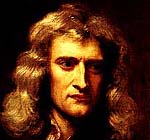.
What a force can do in the absence of resistance is increase the velocity of an object -- accelerate it.
However... even without external resistance, there remains an internal resistance, by the object itself. An astronaut pushing a one-ton satellite out of the cargo bay of the space shuttle quickly finds that even though the satellite seems "weightless," it is not easily moved. Given a push by the astronaut, it will indeed start to move, but v-e-r-y v-e-r-y s-l o-w-l-y . It resists being put in motion, and once moving, it resists just as much being slowed down or stopped.
(In Newton's day, of course, no one had any experience in moving "weightless" satellites in orbit. However, people were quite familiar with the docking of ships and large boats. A heavy boat acts very much like a "weightless" satellite: the water supports its weight, but offers very little resistance to slow motion. And there too, when such a boat is pushed away from the dock, it starts moving very gradually: but once it is moving, it is just as hard to stop.)
Newton named that internal resistance inertia.
Obviously, inertia increases with the amount of matter. A bowling ball is harder to get moving and harder to stop than a hollow rubber ball of the same size.
The bowling ball is also heavier, that is, it is pulled downward with greater force: but weight is an effect of gravity, while inertia is not. The two seem to go together in some way, and the next section examines this further.
Tidbit:
Supertankers (" Large Crude Carriers") are large ships which can carry 150-300,000 tons of crude oil, at about 18 mph (nearly 30 km/h). Such a heavy load carries an enormous inertia. Even with the engine thrown into reverse, supertankers take a mile or more to come to a stop, and are equally hard to turn around. Yet a wreck must be avoided at all costs, because oil spills cause enormous ecological damage.
Supertanker officers are therefore trained in a facility in the Netherlands (Holland), piloting a small replica of a supertanker around a lake. The replica is about 25 feet long, and the officer sits in it with just the head showing. Although small, the boat is heavy and underpowered. It only has a small engine, the size of an outboard engine used by small boats, and its rudder is also to scale, small. Therefore, even though the boat has far less speed than a supertanker, it is also hard to stop and control (in the limited space of the lake), and can therefore train officers in the handling of heavily loaded ships.
Exploring Further
A 